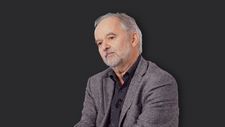
Jürgen Kraska
Personally, I of course always felt Unna-Massen was something special, because I think it created very good conditions for those arriving. Not just for receiving people, but also for offering them a good selection of initial information on integration measures. There were opportunities to relieve parents in those first weeks by providing schools and kindergartens so that they themselves could take courses. Even for women, who normally had to be there for their families and look after their children and had no opportunity of attending courses. These were all elements that I thought were really good.
Alongside the steady flow of German resettlers from the East, GDR refugees and from the 90’s onwards Jewish immigrants, there were also special operations from time to time.
I remember well how we had to organise accommodation for Kosovo refugees within four days. That was a pretty big challenge, receiving a thousand people by a particular date. We had the advantage of having structure in Unna. Everything that we needed was on hand. Charities, public authorities, and that it was a large facility that had the necessary infrastructure available to put something like that into practice relatively quickly. Those were the special challenges.
It was a facility where about two hundred people worked in a totally normal office dealing with admittance procedures. But when they were needed, they also helped down by the buses whenever an emergency admittance took place. So there was always that awareness that we had a very particular mix of duties.
Even later, you noticed that whenever special challenges arose, a kind of engine was switched on and these people would surpass themselves, it has to be said.